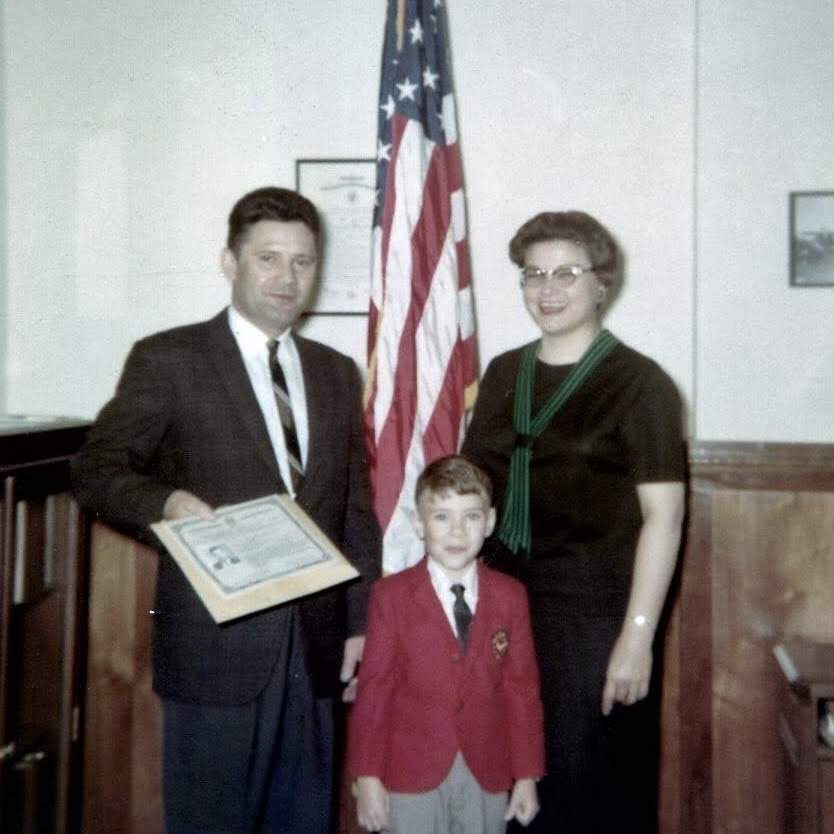November 1, 2021
Yesterday, the Tulsa World published an opinion piece I wrote recently, urging us all to help the new Afghan refugees who are being resettled in our area. The link is above, and I’m pasting it below also.
After hearing about their needs and the special conditions that allowed their admittance to the US, it made me think about how very different my Dad’s experience was as a refugee in 1956-57.
———–
Sixty-five years ago, on Oct. 25, 1956, an event took place in Hungary that changed lives in Muskogee.
Hungary had begun to chafe under its particular brand of communism and sought to change its fortunes. My Dad, Gregory, a lieutenant in the Hungarian Army and an ROTC instructor/agriculture teacher at a small college near Austria, was propelled by this time of change into fleeing his country and arrived in New York on Jan. 1, 1957.
Approximately 200,000 Hungarians fled the crackdown when the Soviet government sent in tanks and troops to maintain their satellite state. The U.S. agreed to accept almost 30,000 refugees, and Canada accepted slightly more.
I’ve often wondered how my Dad knew it was time to take that drastic step: to leave his home and everything he knew, not knowing he wouldn’t be able to return for 25 years; to leave the land he and his family had farmed for almost 500 years and become a refugee; to not be able to bury his mother and father and not be present in the lives of his brothers, sisters or their families.
Thankfully for me, my Dad and others were sponsored by the First Presbyterian Church in Muskogee, which sought a Hungarian refugee family. Instead, there were seven young Hungarian men, who learned English, settled into apartments, and found jobs.
My Dad went to work for O.W. “Bill” Coburn, who was the late Sen. Tom Coburn’s father. Working for Coburn for 32 years, he’d say he wished he had 25 Hungarian workers rather than just three, as they were the hardest working individuals he’d ever had.
Ten years after his arrival, my Dad became a U.S. citizen.
On the whole, “the Hungarians” settled into life in Muskogee — working for companies, owning restaurants, going to the lake, paying taxes, having other Hungarian relatives join them, and marrying local girls, like my Mother, Marjorie.
Not long ago. I was reminded that my father rented a house to a Vietnamese family in the mid-1970s who had fled the fall of Saigon. It’s a testament to the American dream that an immigrant refugee from 1957 could help another immigrant refugee with a house less than 20 years later.
In those earlier times, prospective new citizens were able to arrive, get jobs, take care of their families and retain their human dignity while jumping headfirst into the American experiment.
Now, things are different. It’s more important than in the 1950s or the 1970s that we “welcome the stranger” as Afghan refugees join us in becoming Oklahomans.
Because of recent immigration law quirks, these latest newcomers are not given much: a one-time, per-person payment of $1,200, one change of clothes, and a one-year limit on their asylum applications. That’s it.
Everything else that we take for granted: not there.
During that one-year limit, it’s unlawful for them to hold jobs, just like if they were being held in refugee tent cities as seen on the news.
My family has been going through boxes for clothes, old cellphones and all the household items that we have in abundance and don’t use anymore.
To donate items or cash, go to Catholic Charities of Eastern Oklahoma at cceok.org/refugees. Or, volunteer to help.
Tulsa Metropolitan Ministry, at tmmtulsa.org, also has a coordinating role to connect local churches with the different partner organizations. The 211 helpline provides an easy way to connect to places and people.
Growing up in Muskogee I remember many of the folks who helped my Dad in his resettlement remained friends throughout his life. Should you be able to help these future Americans, you may find your life enriched in similar ways.
Contact the agencies, talk to your church family and do what you can.
Almost all of us were once new arrivals here. Do what you can to help.
